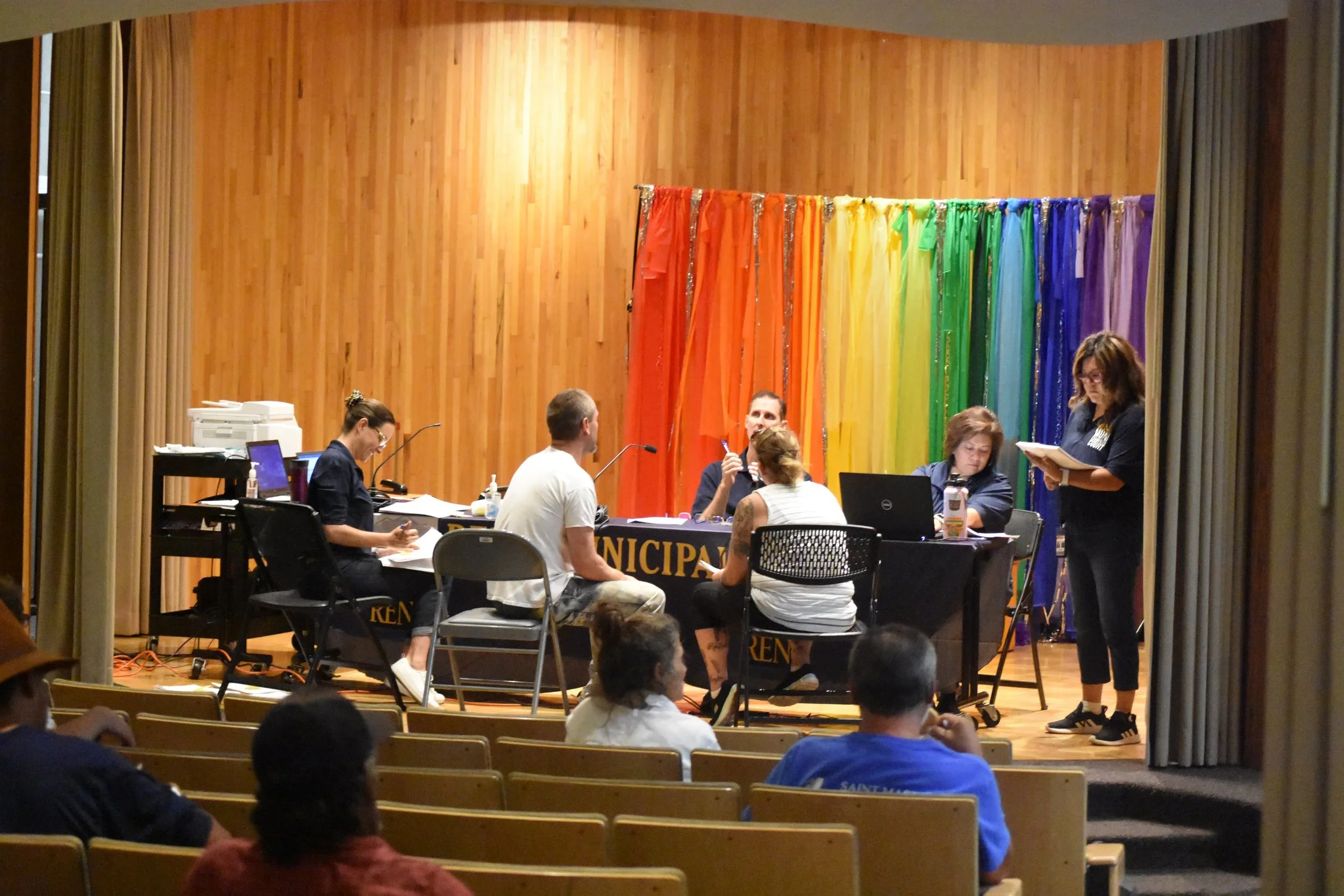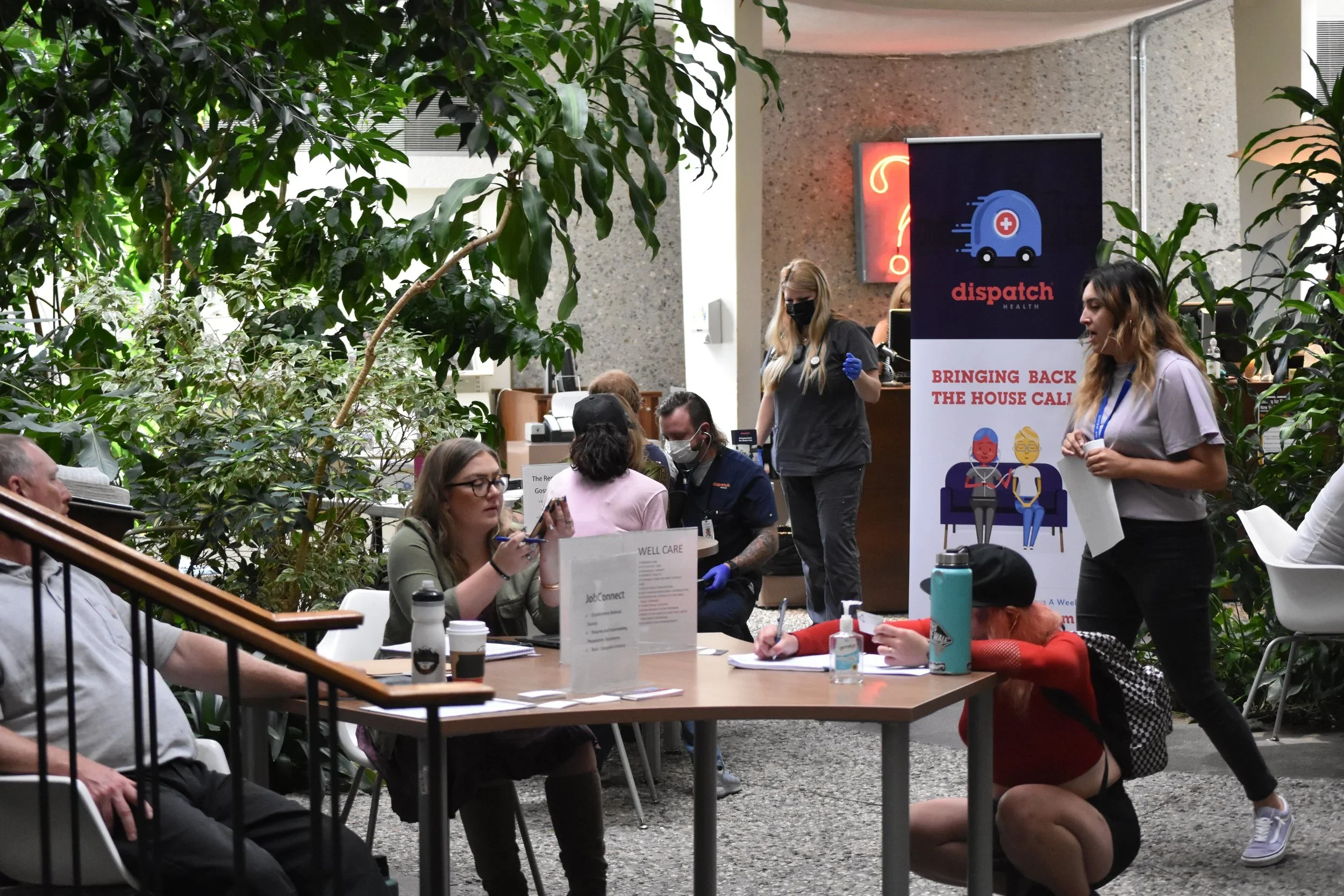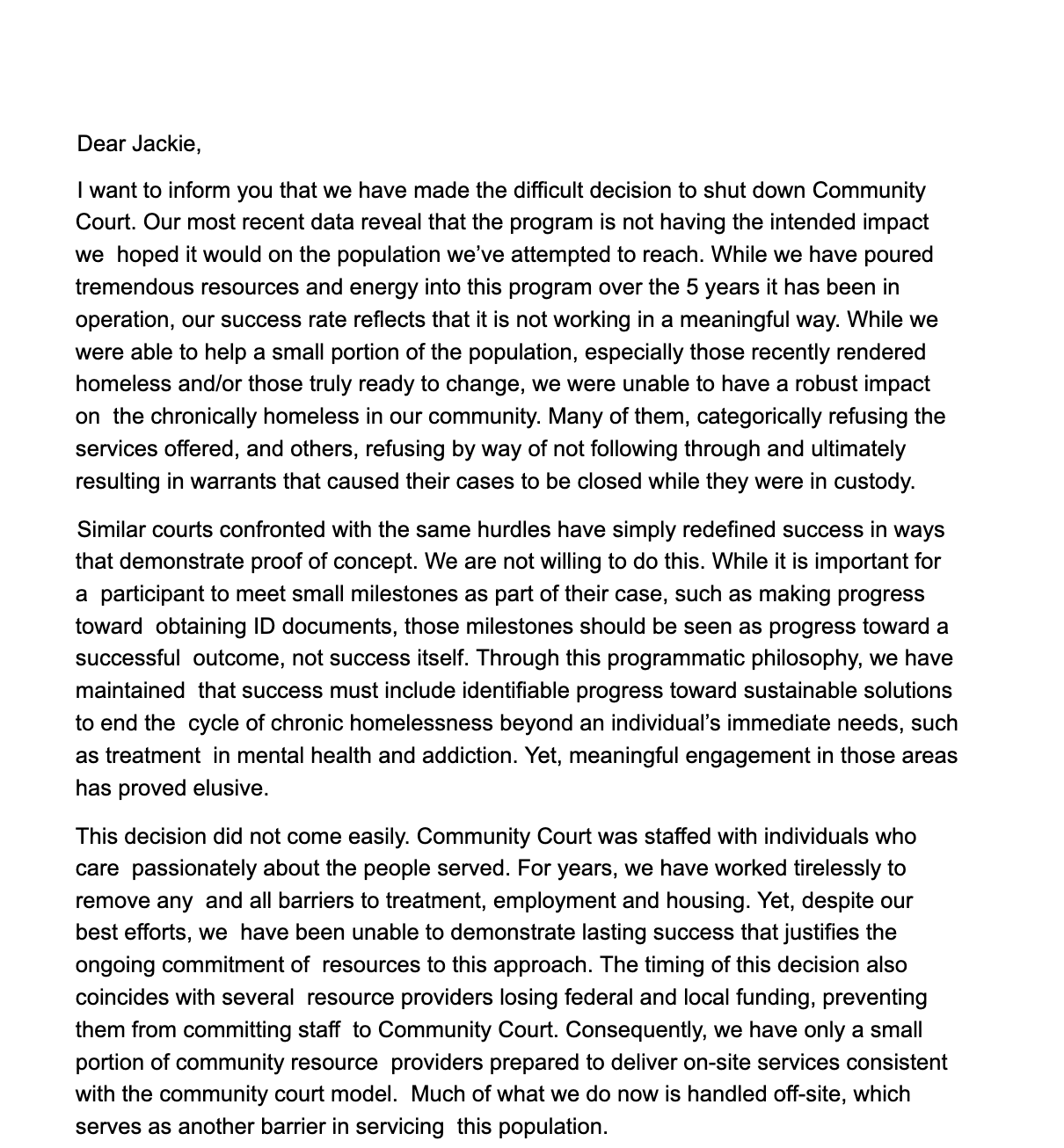A recent letter by Judge Chris Hazlett-Stevens that was recently sent to Reno City Manager Jackie Bryant and forwarded to Our Town Reno indicates the Community Court is being shut down.
“Our most recent data reveal that the program is not having the intended impact we hoped it would on the population we’ve attempted to reach. While we have poured tremendous resources and energy into this program over the 5 years it has been in operation, our success rate reflects that it is not working in a meaningful way,” the letter indicates.
“While we were able to help a small portion of the population, especially those recently rendered homeless and/or those truly ready to change, we were unable to have a robust impact on the chronically homeless in our community. Many of them, categorically refusing the services offered, and others, refusing by way of not following through and ultimately resulting in warrants that caused their cases to be closed while they were in custody,” it goes on.
A page on the City of Reno website still touts what it calls Specialty Courts and Programs indicating “Specialty Courts (usually characterized as either “Drug Courts” or “Problem-Solving Courts”) are specifically-designed court programs aimed at reducing recidivism and increasing public safety by intensive behavioral supervision, judicial monitoring, and treatment of substance abusers.”
The community court program was often promoted in local media. A flyer released last December said over 483 people had been served at that point in 2024, with 300 admitted. It also listed their educational level, drug of choice, gender, age and race. Most were caucasian, in the 41-50 category, male, using alcohol or meth, and high school dropouts.
“Similar courts confronted with the same hurdles have simply redefined success in ways that demonstrate proof of concept. We are not willing to do this. While it is important for a participant to meet small milestones as part of their case, such as making progress toward obtaining ID documents, those milestones should be seen as progress toward a successful outcome, not success itself. Through this programmatic philosophy, we have maintained that success must include identifiable progress toward sustainable solutions to end the cycle of chronic homelessness beyond an individual’s immediate needs, such as treatment in mental health and addiction. Yet, meaningful engagement in those areas has proved elusive,” Judge Hazlett-Stevens wrote.
In previous Our Town Reno reporting, our reporters witnessed the court in action at the downtown Reno library, with hearings for low-level crimes, while service providers set up tables to offer support through various programs.
“Closing this Court is not for want of support or effort,” the letter concluded. “It simply reflects a recognition that this program, with all its attributes, was unable to address the profound needs of this population.”



